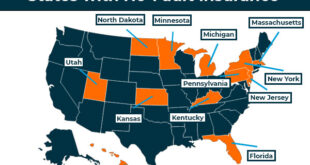Flexible Loan Tenure: Best Option for Your Needs Flexible loan tenure offers borrowers the ability to customize their repayment schedules to align with their financial circumstances. Whether you’re taking a personal loan, a home loan, or an education loan, understanding how loan tenure flexibility works can save you money and reduce financial stress. In this article, we’ll delve into the benefits, considerations, and strategies for selecting the best flexible loan tenure to match your needs.
What is Flexible Loan Tenure?
Flexible loan tenure refers to the option provided by lenders that allows borrowers to select the duration of loan repayment within a specified range. This customization empowers borrowers to balance their monthly obligations and long-term financial goals.
Benefits of Flexible Loan Tenure
- Tailored Repayment Plan
Adjusting the tenure lets you manage monthly payments based on your income and expenses. Shorter tenures mean higher EMIs but less interest overall, while longer tenures provide manageable EMIs at the cost of higher interest. - Improved Financial Planning
Flexibility helps align loan repayment with your financial milestones, such as retirement, education expenses, or major purchases. - Reduced Financial Stress
Opting for a tenure that suits your financial condition minimizes the risk of default and improves peace of mind.
How to Choose the Right Loan Tenure
1. Evaluate Your Income Stability
- A stable income may allow shorter tenures with higher EMIs.
- Uncertain income may require longer tenures for affordability.
2. Consider the Loan Amount
- Larger loan amounts may necessitate extended tenures to keep EMIs manageable.
3. Assess Interest Rates
- Lower interest rates make shorter tenures more appealing as you save on total costs.
4. Weigh Your Financial Goals
- Align your repayment schedule with long-term goals, like buying a house or investing in your business.
5. Use Loan Calculators
- Many lenders provide calculators to simulate EMI options for different tenures.
Flexible Loan Tenure Options in Common Loan Types
- Personal Loans
Typically range between 1–5 years, offering flexibility for varying needs like weddings, education, or emergencies. - Home Loans
Often span 10–30 years, allowing borrowers to balance affordability and interest savings. - Car Loans
Usually range from 1–7 years, depending on the vehicle cost and borrower’s capacity. - Education Loans
Provide long tenures with repayment often starting after course completion.
Tips for Managing Flexible Loan Tenure
- Calculate Affordability
Always ensure EMI payments fit your budget without compromising other expenses. - Account for Future Changes
Consider potential salary increases or life events while choosing tenure. - Maintain a Good Credit Score
A higher score gives access to loans with favorable terms and tenure flexibility. - Negotiate with Lenders
Many lenders may offer personalized tenure adjustments based on your profile. - Avoid Overextending Loan Periods
Prolonged tenures can lead to significantly higher interest costs. - Understand Prepayment Terms
Check if your lender allows early repayment without hefty penalties. - Monitor Your Loan Performance
Regularly review your repayment progress and adjust tenure if necessary. - Choose Trusted Lenders
Work with reputable institutions that clearly outline tenure options and policies. - Diversify Your Financial Strategy
Ensure loan repayments don’t interfere with saving or investing. - Seek Financial Advice
Consult experts to determine an optimal loan tenure strategy.
FAQs on Flexible Loan Tenure
- What is the maximum loan tenure for personal loans?
Most lenders offer up to 5 years, but it may vary based on policies. - Does a longer tenure increase my loan eligibility?
Yes, it lowers EMI amounts, improving your chances of approval. - Can I change my loan tenure mid-way?
Some lenders allow tenure adjustments under specific conditions. - How does tenure affect total interest paid?
Longer tenures typically result in higher interest costs over time. - Are flexible tenures available for all loan types?
Yes, most loans offer some level of flexibility, especially personal and home loans. - Does flexible tenure impact my credit score?
Only missed payments affect your score, not tenure length. - How do I calculate the ideal tenure?
Use online EMI calculators and factor in your financial situation. - Is prepayment allowed in flexible tenure loans?
Most lenders permit prepayment, but some charge penalties. - Do flexible tenures have hidden costs?
Check for administrative fees or penalties in the loan agreement. - Which tenure option saves the most money?
Shorter tenures save on interest but require higher EMIs.
Conclusion
Flexible loan tenure provides a valuable tool for managing debt effectively and aligning repayment schedules with financial goals. By assessing your income, loan amount, and long-term plans, you can choose a tenure that minimizes stress and maximizes benefits. Utilize online tools, negotiate with lenders, and consider professional advice to make informed decisions.
By understanding the dynamics of loan tenure flexibility, you can secure favorable terms that pave the way for financial stability. Whether it’s a personal loan, home loan, or car loan, the right tenure choice ensures smoother repayment and greater peace of mind.
 Gerbang Finance
Gerbang Finance

